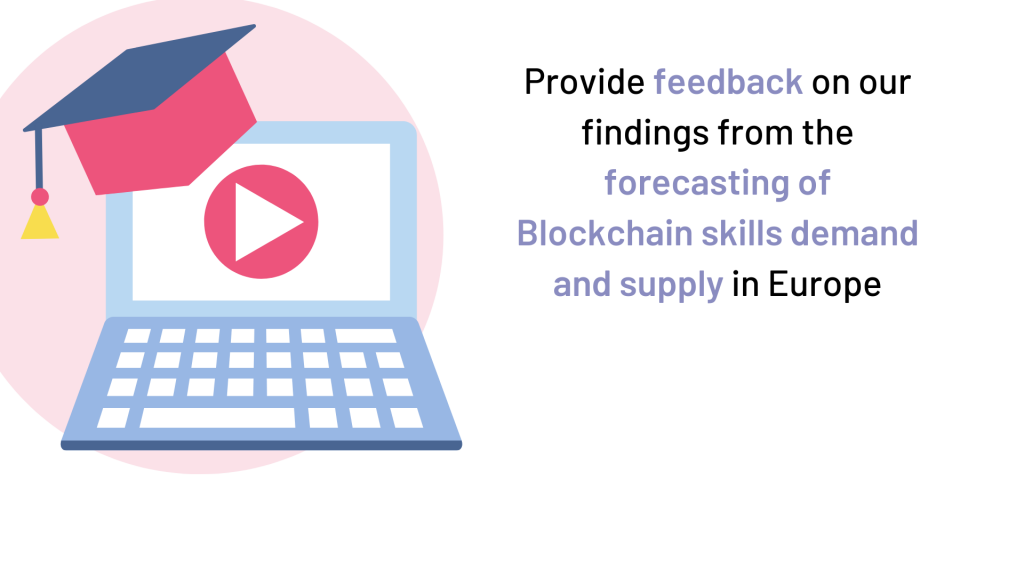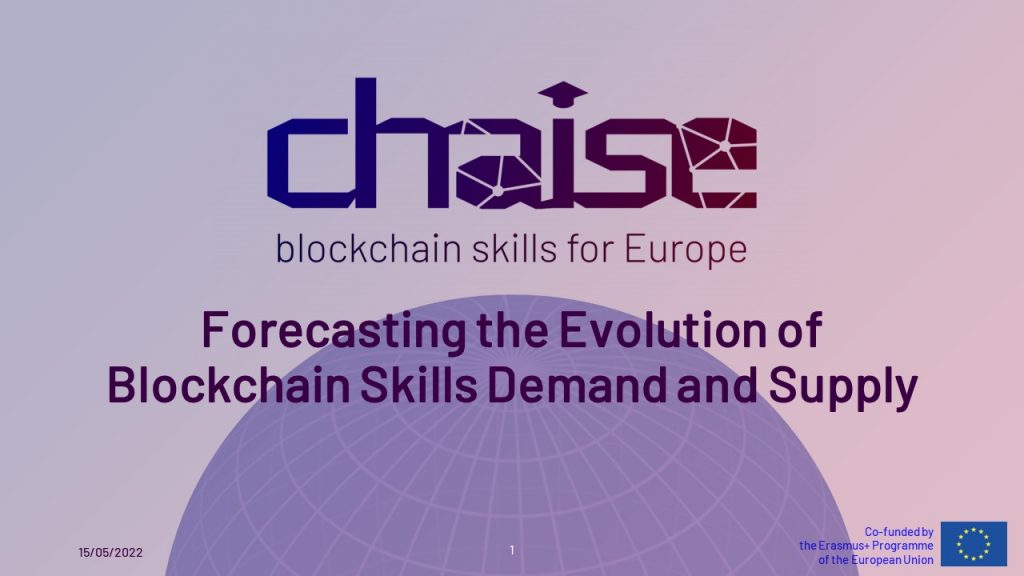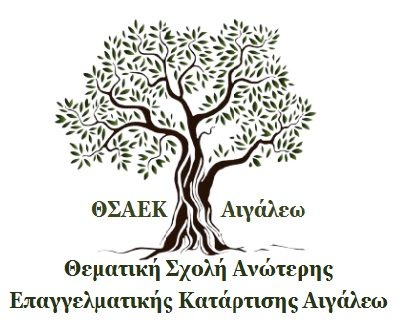
A roundtable discussion was held on 14 April 2022 to comment on the results of the Blockchain’s Demand and Supply Skills Survey in the European Union. The discussion was attended by the CHAISE research team and Messrs. Giannis Rizopoulos (journalist), Vassilios Vlachos (Associate Professor, Department of Economics, University of Thessaly) and Panos Fitsilis (Professor, Department of Business Administration, University of Thessaly).
The categorization of competences, skills, knowledge, and proficiency levels, a reference to the European e-Competence Framework (eCF) was suggested. Moreover, one could also use ESCO (European Skills, Competences, Qualifications and Occupations) that is the European multilingual classification of skills, competences, qualifications, and occupations. A new release was issued in January 2022.
In the future, there will be a strong demand for jobs in the Blockchain sector. But an inflationary situation should be avoided as people will attempt to use blockchain anywhere, even in cases where it is not necessary, or it could become dangerous. Before deciding to use Blockchain technology important questions should be asked:

- 1. What can it really offer?
- 2. Where can it be effectively applied?
- 3. How can we avoid malicious use?
- 4. How will important security issues be resolved?
- 5. What is the value of blockchain without PoW or PoS algorithms?
- 6. Is Blockchain a universal public store that does not allow re-registration?
ICT specialists will have to consider that blockchain may not be the solution to every problem.
There is a huge need for young people to be educated in these exciting, new technologies. About half of the future Blockchain jobs will be addressing to young graduates. But who is going to train them? How are they going to delve into Blockchain technology?
Although an ICT background is necessary to deeply understand Blockchain, this does not mean that blockchain and related technologies should be taught exclusively in IT Departments. Blockchain is an “Ecosystem”, an ICT specialization with cross-curriculum elements from other sciences: Finance, Management, Mathematics, Public Administration, Education, Law, even Meteorology. A cross discipline approach should be applied to the Blockchain specialist field. The Blockchain basics, should be a part of the curriculum of the above-mentioned sciences. As far as it concerns application development, courses in cryptography, parallel and distributed systems, information systems security, programming, and databases are necessary.
Right now, it is important to distinguish where and how we should invest and develop the relevant Blockchain services in a sustainable way. That is, we must go through the prototype applications to the creation of robust systems which will then go into productive operation. For the next 5 years, the most important Blockchain related issues concern trust, credibility, the absence of a legal framework, the fact that Blockchain is not known to the public, the matter of the energy consumption, the matter of security, the matter of a registration erasure and the matter of prudent use of Blockchain.
The blockchain technology was developed to support cryptocurrencies and therefore financial applications within a decentralized, distributed, secure, network-centric system. Infrastructure will be necessary for a completely innovative network of services and transactions that utilize these technologies. Smart contracts, Bitcoin, (Cyber) Rodeo Markets, FinTech, DeFi are Blockchain related words.
There is a lack of Blockchain related skills. These deficiencies can be reversed through proper training. The main policy changes required to tackle skill shortages and/or skill mismatch in the sector concern:
- Expansion and enlargement of policies at National, European, and international level
- Intensity (Skills / Excellence Centers)
- Interdisciplinarity
- Train the trainer
- Blockchain Registry
